Overview of lyophilized products and freeze drying contract services offered by leading contract development & manufacturing organizations (CDMOs).
Q1. What is freeze drying (lyophilization) and what are its applications in the pharmaceutical industry?
Among the list of approved biopharmaceuticals in the industry, around 50% are freeze-dried – indicating that freeze-drying is the preferred way of stabilising biopharmaceutical drug products that are unstable in aqueous solution. This is true despite the high cost and long processing time linked with the sterile drug product manufacturing technique.
Many biopharmaceuticals have limited stability in aqueous solution and are subject to a number of degradation pathways mediated by water, which might result in a lower potency or even in toxicity of the drug molecule. Freeze drying, or the sterile lyophilization technique, is used to remove water from such sensitive — mostly biological — products without damaging them.
Freeze-drying is the process by which the solvent (usually water) and/or suspension medium is crystallized at low temperatures and removed by sublimation. Compared to other methods of product preparation, controlled bulk lyophilization capacity keeps the product at a low enough temperature to avoid changes in the characteristics and appearance of the lyophilized product.
Thus freeze-drying or the sterile lyophilization technique is currently used as a preservation method for foods, pharmaceuticals, and a wide range of other products. In pharmaceutical applications, freeze drying improves the stability and long term storage life of labile drugs, especially protein drugs.
Furthermore, freeze-dried products have a very high surface area, which enables them to be reconstituted quickly. Lyophilized products can thus be preserved in a permanently storable state and be subsequently reconstituted by replacing the water. This quick reconstitution is particularly important in the case of emergency vaccines and antibodies, which need to be administered as soon as possible.
However, the conditions under which pharmaceutical products are freeze dried are subject to stringent standards. Satisfying these requirements is essential for companies wishing to prove that their products have been safely produced via lyophilization contract services and are suitable for sale both at home and overseas.
As biopharmaceutical products continue to benefit from freeze-drying (lyophilization), various contract manufacturers - CMOs, Contract Development and Manufacturing Organizations (CDMOs) - now offer a full suite of freeze drying or lyophilization contract services, and some have enormous freeze drying capabilities.
Some Advantages of Pharmaceutical Freeze-Drying Contract Services:
- Freeze-dried products can be reconstituted quickly and easily
- Color, taste, and shape preservation
- Longer shelf life
- Weight reduction, easier to transport
- Ease of packaging
Q2. What are the different steps involved in freeze drying?
The freeze drying process entails various steps. First there is a pre-treatment stage, where components are added to the material that is to be freeze dried. This is mainly done to increase the yield, quality and appearance of the final product, but also to increase the temperature of drying and to reduce the cycle time.
Freeze drying or bulk lyophilization mainly consists of the following three steps:
Step 1. Freezing
Freeze-drying then continues with freezing the aqueous form of a product on shelves in a vacuum chamber, after which the chamber is evacuated. During the freezing phase, the drug is cooled, frozen and then supercooled in vials.
During this stage, it is vital that the material is cooled below its critical temperature to ensure it is fully frozen. Sometimes pre-freezing may take place prior to the freezing stage, via shell freezing or vertical spin freezing.
Step 2. Primary Drying
At the next stage, the product is slowly warmed up over a number of hours to boil off the liquid, with any moisture being evacuated in the process through a cold condenser. It involves the targeted use of sublimation, whereby the liquid physical state is left out through application of a defined vacuum.
During the primary drying phase, pressure is lowered, and enough heat is supplied to the material for the water to sublime. In this initial drying phase, about 95% of the water in the material is sublimated. However, it may be slow because if too much heat is added, the material’s structure could be altered.
Step 3. Secondary Drying
This is followed by a secondary drying process, during which the temperature in the chamber is raised to help remove any residual water. In the area where the ice has already been removed, desorption of water from the cake occurs; this process is referred to as secondary drying and already starts in the primary drying phase.
Once all ice has been removed from all product containers, the shelf temperature is elevated and typically maintained at a temperature between 20°C and 40°C for several hours. Furthermore, as a final check that the product is dry, a pressure rise test is carried out, with any more than a fractional rise in pressure indicating that there is still some residual liquid present.
After the lyophilized products are prepared special care is taken while packaging them to ensure protection from moisture. Containers are closed while ensuring no contact of the product with the atmosphere. Furthermore, these closing or stoppering steps must be carried in specialised facilities with controlled atmospheric conditions.
Q3. What are the considerations for aseptic processing and sterile fill-finish?
Aseptic Processing & Aseptic Fill Finish Services (Sterile Fill and Finish)
Aseptic processing can be defined as the processing and packaging of a commercially sterile product into sterilised containers followed by hermetic sealing with a sterilised closure in a manner that prevents viable microbiological recontamination of the sterile product.
cGMP sterile fill and finish services (aseptic fill finish services) are carried out in a cleanroom dedicated to sterile manufacturing processes, where a sterile drug is transferred by a filling needle to a sterile container and stoppering or closing of the container occurs immediately after it is filled.
Some Considerations for Aseptic Manufacturing & Sterile Fill and Finish or Aseptic Fill Finish Services:
- Formulation factors
The main factors that must be considered from the outset when developing formulations for biologic drug substances that require sterile filtration include the product’s chemical and physical stability under various stress conditions during sterile drug product manufacturing, storage, shipping, and administration.
Compatibility with the materials used during sterile fill finish processing and compatibility with the final container closure system and administration device should also be taken into consideration during aseptic manufacturing.
- Cleanroom Facilities
Aseptic processing and sterile fill-finish operations take place in cleanrooms that are designed to accommodate the flow of personnel, materials, and equipment during the sterile drug product manufacturing process.
Environment monitoring (EM) activities are vital to the operation of a cleanroom. Proper EM requires qualified methods to regularly collect, evaluate, and interpret data on the air and surfaces in the cleanrooms.
- Room Classification
The various operations of component preparation (such as those involving containers and closures), product preparation, GMP filling services and sterilization should be carried out in separate areas within the clean area. These areas are classified into four grades according to the required characteristics of the environment.
Each manufacturing operation requires an appropriate level of environmental cleanliness in the operational state to minimize the risks of particulate or microbial contamination of the product or materials being handled.
- Cleanroom Personnel
The personnel in the cleanroom are absolutely necessary to complete the aseptic fill and finish process, but at the same time, provide the greatest microbial risk for a sterile product. Thus the amount of investment that is made to limit the operational personnel risk to the sterile drug is high.
Personnel are encapsulated with extensive sterile gowns and qualified gowning procedures, automated fill/ finish equipment is installed to reduce the amount of personnel who are present in the cleanroom during the aseptic fill and finish process, etc.
- Costs
Once you understand your product and your market, it is important to consider the cost of equipment and packaging materials and assess the requirements of the new process and the changes needed in facilities.
Furthermore costs such as infrastructure requirements for product and packaging sterilization, added instrumentation, personnel training and regulatory compliance should be taken into consideration.
Q4. Which are the leading companies offering pharmaceutical contract lyophilization services?
Some leading contract manufacturers - Contract Development and Manufacturing Organizations (CDMOs), CMOs - offering pharmaceutical contract lyophilization services for complex parenteral formulations are noted below. Furthermore, the sterile manufacturing, aseptic fill finish services and pharmaceutical contract lyophilization services provided by these contract manufacturers are also explored in detail.
AbbVie Contract Manufacturing - Lyophilized Formulation Development Services
AbbVie Contract Manufacturing provides lyophilization contract services including process optimization, scale-up, and technical transfer, computational fluid dynamic modeling, differential scanning calorimetry, etc.
AbbVie Contract Manufacturing offers these aseptic fill and finish contract services as part of its extensive formulation and scale-up services at all phases of development, including preclinical to clinical scale and commercial scale (clinical and commercial supply).
Pfizer CentreOne - Lyophilized Formulation Development Services and Aseptic Fill Finish Services
Pfizer CentreOne’s sterile injectable formulation development services include lyophilization cycle development and optimization, process development, aseptic processing and terminal sterilization, controlled substances (II - IV), etc.
It can deliver upstream and downstream drug substance pharmaceutical manufacturing services combined with sterile fill finish services for drug products with an integrated, scalable program for clinical and commercial supply. Its comprehensive sterile fill finish services include bulk lyophilization and pre-filled syringes. PC1 also offers lyophilization contract services for intermediates.
AMRI - Freeze Drying Capabilities
AMRI offers a range of sterile lyophilization techniques at preclinical to clinical scale while using commercial-grade redundant components with a total of 1230 square feet capacity across four freeze dryers in their GMP lyophilization capabilities.
Its lyophilization capacity for clinical and commercial supply includes formulation development services, cycle development and optimization, stability assessments, etc. for small molecules and complex biologics (eg. complex parenteral formulations).
Eurofins CDMO - Lyophilization Capacity / Freeze Drying Capabilities
Eurofins CDMO (Contract Development and Manufacturing Organization) offers lyophization contract services that can help you in your formulation transition from liquid to freeze dried forms, solubilization and formulation study for injection, freeze drying cycle development and optimization.
Eurofins also offers aseptic processing, sterile manufacturing and sterile fill finish (GMP filling services) pharmaceutical manufacturing services for all drug product configurations including large and small molecule products, complex parenteral formulations, etc. under full global, GMP-compliance.
Oncomed Manufacturing - Lyophilization Contract Services
Oncomeds leading expertise in pharmaceutical manufacturing services such as aseptic manufacturing includes freeze dried products. Both lines are equipped with freeze dryers, line 2 has a special freeze drier which can accommodate organic solvent formulations.
They offer production of high potent and anticancer injectables at preclinical to clinical scale and commercial scale, including small molecule APIs (end-to-end solution) and more innovative large molecule drugs (sterile fill and finish, GMP filling services), like ADCs, HPAPI proteins and mAb and oligonucleotides.
All Suppliers






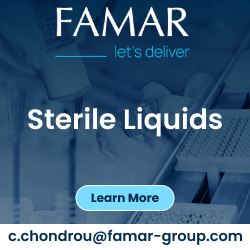
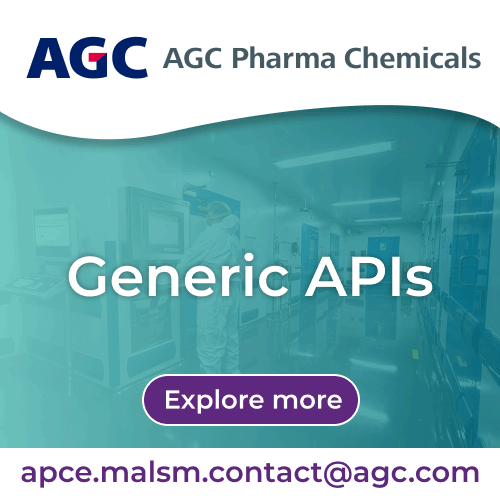
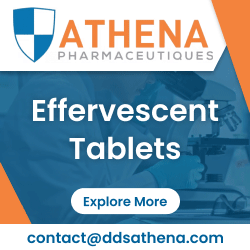
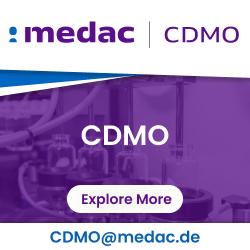
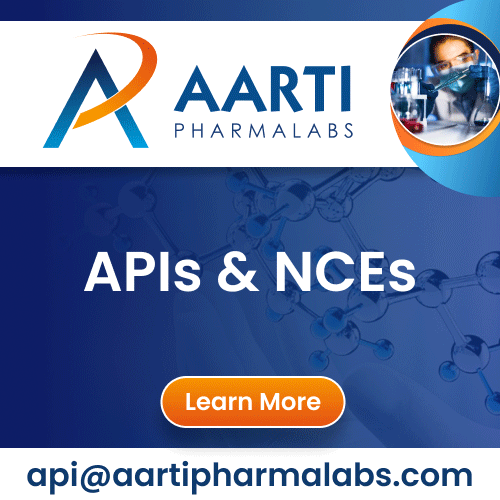
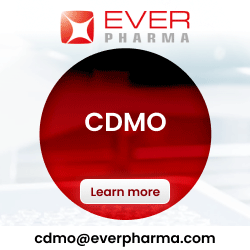




 AbbVie CDMO has been working with global companies to develop, manufacture & scale biopharmaceutical products.
AbbVie CDMO has been working with global companies to develop, manufacture & scale biopharmaceutical products.









